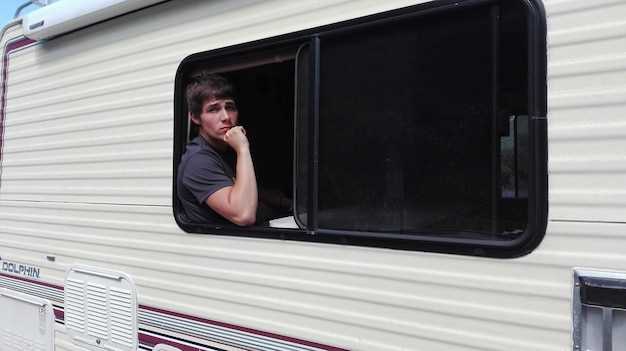
When it comes to embarking on an adventure or completing a home project, finding the right trailer can make all the difference. With various options available on the market, it is essential to select a rental trailer that aligns perfectly with your specific needs. A poorly chosen trailer can lead to unnecessary complications, while the right match will streamline your experience and enhance your ability to transport goods effectively.
Understanding what type of trailer best suits your requirements is the first step in making an informed decision. Consider the weight, size, and type of cargo you plan to haul, as these factors will determine the ideal trailer for your situation. Whether you require an enclosed trailer for sensitive items or an open utility trailer for larger equipment, knowing your needs will help narrow down your choices significantly.
Moreover, educating yourself about the different features available in rental trailers is crucial. From load capacity to specific accessories, ensuring that the trailer you choose is a perfect match for your project will save you both time and money. An informed selection process not only provides peace of mind but also guarantees the efficiency of your transportation needs.
Identifying Your Cargo Type and Weight Limits
When selecting a rental trailer, the first step is to clearly identify the type of cargo you intend to transport. Different trailers are designed to accommodate specific types of loads, such as furniture, vehicles, or construction materials. Understanding the nature of your cargo will guide you in choosing the right trailer that offers the necessary space and protection during transit.
Additionally, it’s crucial to weigh your cargo accurately. Every trailer has a maximum weight limit, known as the Gross Vehicle Weight Rating (GVWR), which includes both the weight of the trailer itself and the cargo it carries. Exceeding this limit can lead to safety hazards, increased wear and tear on the trailer, and potential legal issues. Therefore, ensure to calculate the combined weight of your items before making a rental decision.
For instance, if you are transporting a vehicle, consider its weight along with any additional items you plan to load into the trailer. Similarly, when hauling furniture or appliances, account for the sizes and weights of each piece to avoid exceeding the trailer’s limits.
Finally, consult with the rental company for specifications on different trailer models available. They can provide insights into which rental trailer best suits your cargo type and confirm its weight capacity, ensuring a safe and efficient transportation experience.
Choosing the Right Size and Configuration for Your Trailer

Selecting the appropriate size and configuration for your trailer is crucial to ensure it meets your specific needs. The size of the trailer should match the amount of cargo you plan to transport, whether it’s furniture, equipment, or recreational vehicles. Start by assessing the dimensions of your items and add a margin for safety and ease of loading. Make sure to consider the trailer’s weight capacity, as exceeding this limit can affect handling and safety during transport.
In addition to size, the configuration of the trailer plays a significant role in functionality. Different configurations, such as open vs. enclosed trailers, offer various advantages. Open trailers are ideal for transporting large, bulky items that don’t require protection from the elements. Conversely, enclosed trailers provide added security and protection for sensitive cargo. Analyze the nature of your load to determine which configuration would best serve your needs.
Furthermore, think about the hitch type and compatibility with your vehicle. Ensure that both the size of the trailer and its configuration match your towing capacity. This consideration is vital for safe and efficient travel. Lastly, if you plan to use the trailer for multiple purposes, consider adjustable features or modular designs that allow you to adapt the trailer to different types of loads.
Understanding Rental Costs and Insurance Options

When renting a trailer, it’s crucial to understand the various costs associated with the rental process. Rental costs typically vary based on factors such as the type of trailer, duration of rental, and the time of year. For instance, specialized trailers, such as those for heavy-duty hauling or climate-controlled transport, often come at a premium. Additionally, weekend or holiday rentals may incur higher fees compared to standard week-long rentals.
Aside from the base rental fee, there are additional costs to consider, such as security deposits, mileage fees, and fuel surcharges. Many rental companies require a deposit that is refundable upon the return of the trailer in good condition. Mileage restrictions may also apply, and exceeding these limits can lead to extra charges. It’s wise to inquire about these potential costs upfront to avoid surprises.
Insurance options are another important aspect of renting a trailer. Most rental companies offer insurance policies that cover damage to the trailer and liability insurance for any potential accidents. It’s essential to review these options closely, as they can significantly affect your overall rental cost. Some customers may already have insurance that covers rental trailers; therefore, checking with your insurance provider about existing coverage can help determine what additional insurance, if any, is necessary.
Choosing the right insurance coverage can provide peace of mind while utilizing your rental trailer. For instance, collision damage waivers can lessen your financial responsibility in the event of an accident, while liability coverage can protect against injuries or damages to third parties. Be sure to clarify the specifics of the insurance options available during the rental process.
In summary, understanding rental costs and insurance options is essential when selecting the best trailer for your needs. By being informed, you can ensure a smooth rental experience while safeguarding your investment.





